Photographs: Reuters Bibhu Ranjan Mishra & Itika Sharma Punit in Bangalore
Shibulal's career was marked by more downs than ups, but one thing Shibulal cannot be faulted for is lack of ideas. His plans had good intentions but they were ill-timed.
Infosys CEO & MD Shibulal has decided to retire as his term comes to an end in March next year. The company has started to look for his successor.
How will history view Shibulal's tenure at Infosys that began in August 2011? In all probability, it will be remembered as a period of turbulence.
It was in Shibulal's tenure when the Bangalore-based company lost most of the things it was best known for in the information technology world: its status as a bellwether, its ability to predict the business accurately and its strong management team which was the envy of competitors. Would it be right to hold Shibulal responsible for all this?
…
Is Shibulal responsible for Infosys' troubles?
Photographs: Reuters
An unqualified affirmative answer will be unfair to the man who has spent almost his entire adult life in a variety of roles in the company he co-founded more than 30 years ago.
"He is like Manmohan Singh. His hands were tied, whereas the situation demanded speedy action," says Kris Lakshmikanth, chairman and managing director of Headhunters India, a top-level executive search firm.
"The outside world, especially the investment community, may not perceive him as a success. But the steps he took when he came in, like Infosys 3.0, were in the right direction. Without that background, you can't build the next level. So, to that extent, he was ahead of the curve. However, certain things were not in his hands."
…
Is Shibulal responsible for Infosys' troubles?
Photographs: Reuters
Turbulent times
When Shibulal took over the reins of the company, the industry was yet to come out of the global slowdown precipitated by the subprime crisis in the US. Companies across sectors had slashed their budgets, and that broke the back of the infotech industry.
It was not that clients were not spending on infotech at all, but it was only on "run-the-business" operations.
This is low-value business and is (profit) margin dilutive - barely enough to sustain the business with steady revenue flow. It was at this time that Shibulal, who had been scripting the whole Infosys 3.0 strategy, decided to roll it out in order to transform the company into a global consulting major, in the same league as Accenture, Capgemini and IBM.
Almost everybody agrees that the intention was right but the timing was bad because hardly anybody was willing to spend on massive technological transformation which requires high-end consulting work.
…
Is Shibulal responsible for Infosys' troubles?
Image: N R Narayana Murthy.Photographs: Courtesy, Infosys
The impact was visible to all. Infosys lost market share to rivals. Its profitability took a hit. The company began to miss guidance quarter after quarter. The morale of the employees reached all-time low.
The first time the company publicly acknowledged that things weren't going well was in June last year when it recalled co-founder N R Narayana Murthy from retirement to take over as the executive chairman. The investors were elated and the Infosys scrip jumped over a third. Many saw it as a vote of no-confidence in Shibulal. Some feel this is unfair.
"He (Shibulal) did try to bring product focus to the company," says T R Madan Mohan, managing partner at management consulting firm Brown & Mohan. "With Infosys 3.0, Shibulal wanted to align the company more on productisation of services and benefit from the multiplier effect of consulting." That has paid dividends, says Mohan, as the consulting business has really grown under him during the last three years.
…
Is Shibulal responsible for Infosys' troubles?
Photographs: Courtesy, Infosys
Mohan says that Shibulal got bogged down by the legacies of the previous regimes. "For a long time, Infosys had lots of layers which did not do much. Besides, he did not have the benefit of benevolent markets," says Mohan. Perhaps, the only area where he could have done better was execution which includes sales and accounts management, he adds.
According to a senior analyst with a domestic brokerage firm, Shibulal's performance should be looked at from two angles: ideas and the ability to drive these ideas. He had great ideas and introduced them to Infosys.
"We don't know of any other Infosys CEO who suggested a shift in numbers like he did. For example, he set the target of getting 33 per cent revenues from products. Three years later, we know that Infosys missed that target, but that in no way means that Shibulal was bereft of ideas or that his ideas were wrong. However, whether he executed these ideas well enough or not can be questioned," he adds.
…
Is Shibulal responsible for Infosys' troubles?
Image: S GopalakrishnanMissing the growth bus
When Shibulal took over from S Gopalakrishnan (now the executive vice-chairman), Infosys, like its peers, was faced with slow demand in key markets. While the green shoots of recovery were beginning to appear, most companies remained "cautiously optimistic".
Over the next few quarters, Tata Consultancy Services and Cognizant Technologies shed all cautiousness and began to gain size at a rapid pace.
Most observers feel Infosys was slower off the block when compared to these two rivals. As a result, not only did Infosys got overtaken by Cognizant in revenues, it also lost the distinction of being the infotech bellwether to TCS.
…
Is Shibulal responsible for Infosys' troubles?
Photographs: Reuters
Early concerns of investors were visible in a letter brokerage firm CLSA wrote to Shibulal around nine months after he became the CEO.
"Having spoken to over 100 investors post Infosys' March 2012 results, we noticed some rare frustration among the investor community on Infosys' recent financial performance," Nimish Joshi of CLSA wrote to Shibulal on April 19, 2012.
"My feeling from talking to Infosys shareholders is that they have grown a bit impatient with this underperformance in the past few years." That didn't help matters.
Over the next several quarters, Infosys' performance remained choppy with one or two exceptions. In the recently ended quarter (January to March 2014), Infosys was the only one among the top-four Indian infotech companies to report a decline in revenues.
…
Is Shibulal responsible for Infosys' troubles?
Photographs: Reuters
High churn
There are other worries too. At the end of the quarter, Infosys' attrition rate touched an all-time high of 18.7 per cent, perhaps the highest in the peer group. Industry observers believe much of that has to do with the way the company thinks: somehow protect the margin, even if the business is choppy.
Employee dissatisfaction is directly linked with the annual increments which the company had to skip a couple of times in the last two to three years, citing slow growth.
At the same time, it needs to focus on improving productivity to protect margins. Shibulal alone can't be blamed for this - the instability in the top management also contributed to the high attrition.
…
Is Shibulal responsible for Infosys' troubles?
Image: V BalakrishnanPhotographs: Reuters
However, the churn at the top may have been precipitated by the fact that Shibulal is the last among the co-founders to be the CEO of the company.
So it means his successor will be a professional, either from within the company or from outside. This led to many senior- level exits, including CEO prospects Ashok Vemuri and V Balakrishnan.
As he prepares to leave the company, Shibulal firmly believes that he is leaving behind a much stronger Infosys than what he had inherited from his predecessor, Gopalakrishnan.
He recounts several internal and external issues that plagued Infosys way back in 2011 when he took over. "I think it is not as tough a time for the company as it was when I took over," says Shibulal.
…
Is Shibulal responsible for Infosys' troubles?
Photographs: Reuters
"We had trailing revenue growth because of the external environment, clients facing challenges, and transformation from Infosys 2.0 to 3.0. We did not have enough visas. A couple of litigations were in progress including the US justice department's investigation. Then there were regulatory challenges. All these had an impact on the brand."
Much of those problems, says Shibulal, are behind it. "The growth rate has doubled year-on-year; all the litigations and investigations have been settled; the new strategy is engrained; we have not lost a single client; and the brand is intact." says Shibulal. "New challenges will always be there, but when I look at things, we are much stronger and younger today."
…
Is Shibulal responsible for Infosys' troubles?
Image: Infosys founders (L- R): Nandan Nilekani, S Gopalakrishnan, Narayana Murthy, N S Raghavan, K Dinesh and S D Shibulal.Photographs: Courteys, Infosys
WORKING IN THE SHADOW OF MURTHY
Things at Infosys had become so tough that the board of directors in June 2013 was compelled to invite co-founder NR Narayana Murthy as the executive chairman to bring the company back on track. He agreed and brought son Rohan along as his executive assistant.
There was a huge outcry as people saw it as a serious lapse in corporate governance. But Murthy got down to business quickly. If sources are to be believed, since Murthy's return, the decision-making has moved into the chairman's office, with the CEO more or less an acting head of the company.
Amid much speculation about his reduced role after Murthy's return, earlier this month Shibulal announced his intent to retire ahead of his superannuation in March 2015. Shibulal, however, brushes aside any speculation over this decision, saying this was to give clarity to the company's board of directors about his plans.
…
Is Shibulal responsible for Infosys' troubles?
Image: S D ShibulalPhotographs: Reuters
Sarojini Damodaran Shibulal
* AGE: 59
* EDUCATION: MSc in Physics from the University of Kerala, MS in Computer Science from BostonUniversity
* CAREER: Joined Patni Computer Systems (now part of iGate) in 1979 as a software engineer in Mumbai; co-founded Infosys in 1981 with N R Narayana Murthy, Nandan Nilekani, N S Raghavan, S Gopalakrishnan, K Dinesh and Ashok Arora
* FAMILY: He is married to Kumari Shibulal and has a son and a daughter. Daughter Shruti Shibulal is with the hospitality industry, while son Shreyas is pursuing engineering from a US university
* WEALTH: Rs 4,331 crore as on December 31, 2013. Ranked 59th in The Billionaire Club of Business Standard

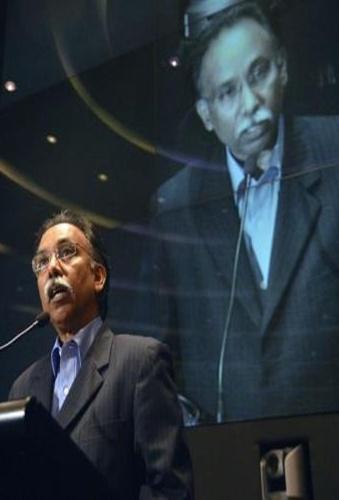
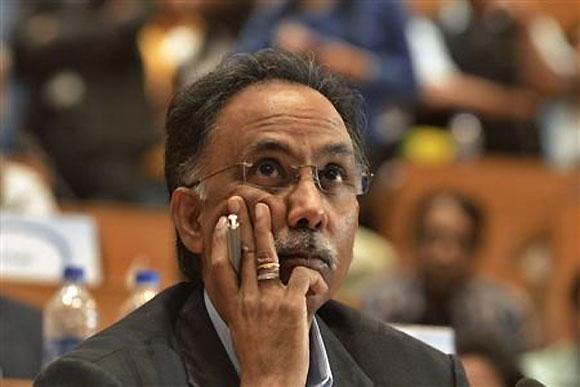
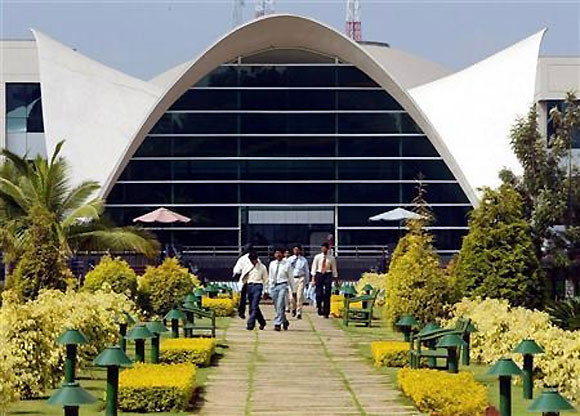
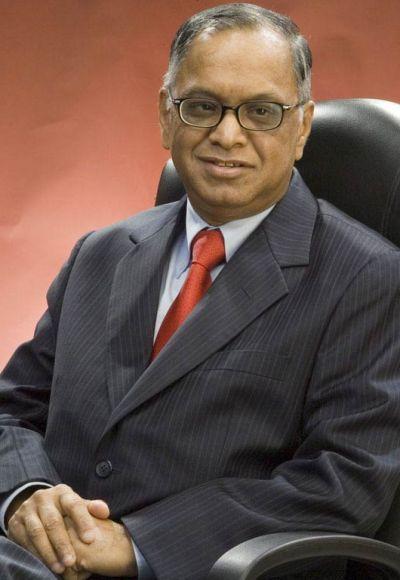
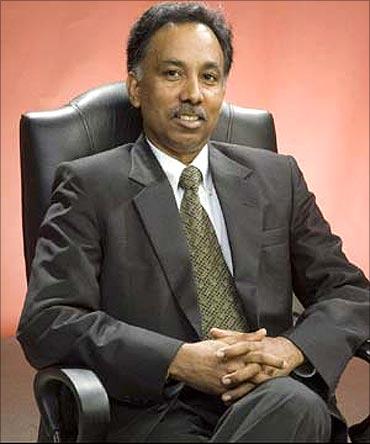
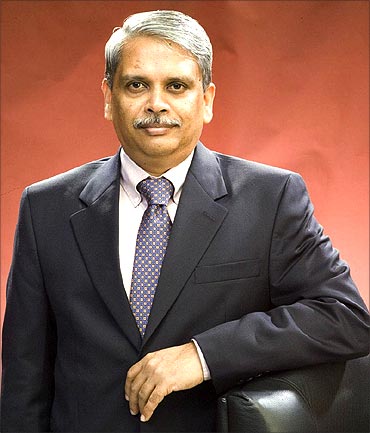
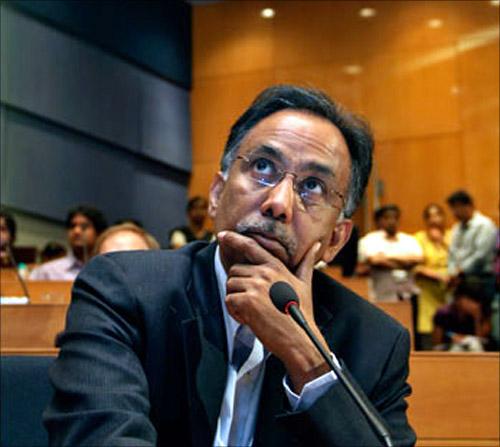

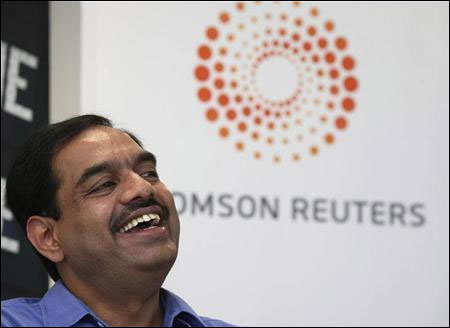
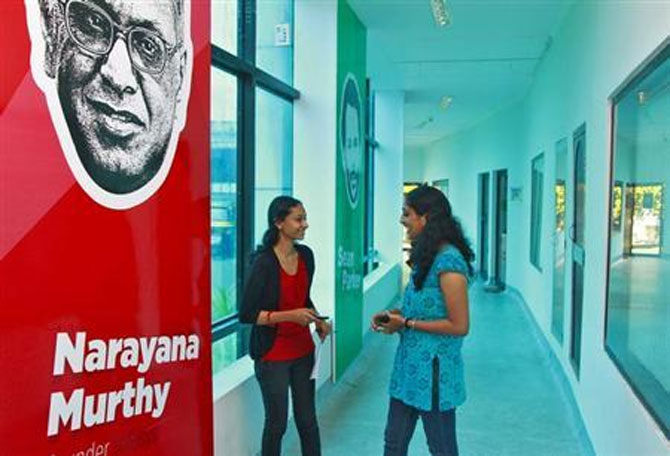

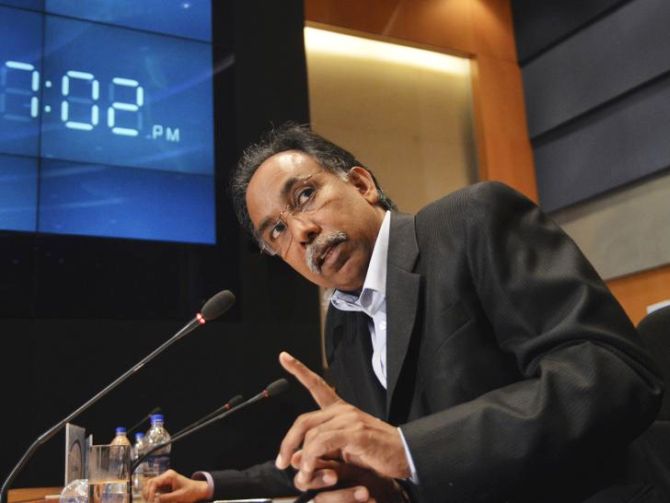

article